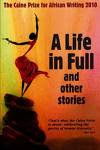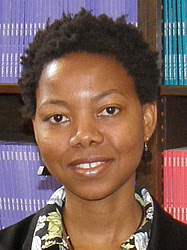
We had an interesting conversation in the comments on my post about the Caine Prize:
1) Why do so many successful African writers live outside Africa? (are they African writers or ‘African’ writers?)
2) Does the Caine, and the literary world generally, favour stories from Africa about poverty?
I’ve nothing further on 1), but I did a little research on 2), and found that every winning story for the last three years was about poor people, and in particular about poor children. 2011’s winning text is linked to in my previous post, but here’s 2010’s, Stickfighting by Olufemi Terry, and 2009’s, Waiting by EC Osondu
I’ve struggled to get much detail about what the stories from previous years were about, but I think this is certainly an interesting tendency for at least the last three.
I should be very clear here that I don’t mean to bash on the Caine prize. I’m really grateful and glad it exists as a platform for African writers. I’m just wondering what this tendency mean – if stories of the poor are perceived as being the ‘real’ Africa; or if it’s simply chance; or if perhaps the majority of stories submitted were in fact about poverty anyway (which would interesting in itself) . . . .

